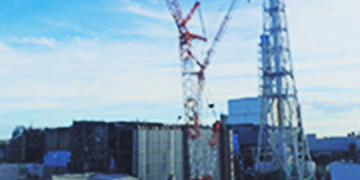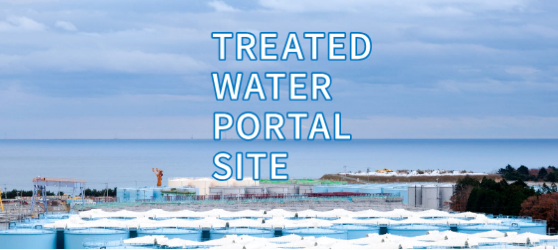TEPCO’s Decommissioning Challenges
Looking Back
Seven years have passed since the Fukushima Nuclear Accident. During my time as superintendent at Fukushima Daiichi, we faced numerous challenges, including water management- leaks from contaminated water storage tanks and rainwater flowing over dikes- among others. I believe events like these happened as a result of the extremely harsh conditions in the field at that time.
However, during the last seven years, we've made great progress with both the treatment of contaminated water as well as our initiatives to remove fuel from spent fuel pools and manage waste. We also started gradually learning about the melted fuel debris that remains from the accident.
I've started to see signs of vigor in the faces of workers heading into the field. They are no longer wearing heavy safety equipment. Great improvements have been made to the work environment, and there are places on the site that show we are getting closer to normal worksite conditions.
The Road Ahead
At the same time, there are still people from Hamadori, a wonderful place in Fukushima Prefecture that has been my home for 16 years and about half of my career at TEPCO, who are unable to return to their homes. The top priority for the FDEC is of course to move safely and steadily forward with decommissioning, and it is also to reduce the risks associated with Fukushima Daiichi as much as possible, to enable the residents of Hamadori to come home as quickly as possible. In order to make that happen, we must move forward strategically and in a planned manner.
The mission with which I have been entrusted is to construct a system for moving forward safely and quickly with the decommissioning of Fukushima Daiichi, estimated to take about 40 years, in order to move on to the next stage.
Decommissioning in FY2018
I’m honored to have been made the top person responsible for decommissioning and contaminated water countermeasures in the field at this time when we are about to get to the heart of the decommissioning work.
To the best of my ability and with unwavering determination, we will move forward with the decommissioning of Fukushima Daiichi strategically and according to plan.
I will also continue to build upon the initiatives started by my predecessor- creating a safe work environment and continually disseminating timely, transparent information.
Water Management
We will continue taking countermeasures for contaminated water to reduce the amount being generated, including preventing the infiltration and potential contamination of rainwater.
Removing Fuel from Spent Fuel Pools
The removal of spent fuel from Units 1-3 is the top priority for Fukushima Daiichi. On that note, the removal of fuel from Unit 3 is one of the most important decommissioning projects for this fiscal year, and one of great concern to society. We will be extremely prudent as we move forward with this work.
Preparations to Retrieve Fuel Debris
In preparation to retrieve the fuel debris that is spread throughout the primary containment vessels of Unit 1-3, we shall continue to implement investigations, perform analyses, and deliberate various issues in order to determine how to retrieve it by FY2019, and beginning the actual retrieval in FY2021. There are many locations inside the primary containment vessel that have high radiation dose levels, making it an environment that is not easy for people to access. Since this process is unprecedented, the whole world is watching closely as we continue to draw closer to the actual retrieval of fuel debris. We will move carefully forward with this project while gathering knowledge and experience from Japan and abroad, employing external decommissioning experts as necessary.
The Key to Success
A famous general during the Warring States Period, which happened in my home town in the 16th century, said “No matter how strong a castle is, if the people lose faith the world will crumble. But, if they are passionate, they can be stronger than any castle.” Our people are our most valuable asset, and decommissioning would not be possible without them. We will make every effort to move forward safely and quickly with decommissioning while making the safety of our workers in the field our top priority.
















